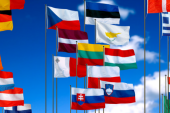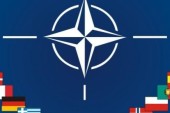
President Obama surprised many this week by tapping Jim Yong Kim as the next president of the World Bank. The nomination of Kim was on the surface unexpected; historically, Wall Street financiers and political insiders have helmed the world’s largest development institution, and familiar names such as Lawrence Summers and John Kerry were bandied about as likely Obama picks.
Kim seemingly does not fit the mold. A physician by background, Kim has spent his career largely outside of the political sphere, most recently serving as president of Dartmouth College. His work internationally has focused primarily on healthcare in developing parts of the world, and health is but one of a range of development issues under the purview of the World Bank.
Some have already charged that Kim would have been the perfect choice to lead the World Health Organization, but that Obama would have been better served choosing someone with a stronger background in economics or finance. Closer inspection at the context in which Obama made the nomination, however, suggests that in Kim, Obama made an inspired choice.
For one thing, Kim’s resume is pretty ridiculous. The Korean-American son of an immigrant family, Kim excelled in academics and sports (in high school, he was valedictorian, class president, quarterback of the football team and point guard of the basketball team…makes you feel like kind of a joke, doesn’t it?), before receiving both an MD and Ph.D. from Harvard University.
In the 1980s, he co-founded Partners In Health (PIH), an organization that used a community-focused model to reduce healthcare costs and improve treatment levels in developing countries, and which has since grown to employ over 13,000 people in 12 countries. In the meantime, Kim joined the faculty first of Harvard and then at Dartmouth, lecturing and publishing widely in scientific and academic journals. He is also a pretty self-deprecating guy, as evidenced by his recent foray into rap music at a Dartmouth talent show:
The real brilliance of Kim’s selection, however, lies in its political calculation. The reason why it was President Obama that was choosing the next head of an international organization dates back to a “gentleman’s agreement” from the end of World War Two, where it was determined that the U.S. would nominate the president of the World Bank, while Europe would get to choose the leader of its sister institution, the International Monetary Fund (IMF).
In a shocking turn of events, the rest of the world doesn’t think this is fair. Emerging economies such as China and Brazil have been lobbying hard for years to be given more influence in the international economic order, while developing countries argue that they too should have more say in the process, since the institutions often affect them most directly. This time around, Nigerian Finance Minister Ngozi Okonjo-Iweala and former Colombian finance minister Jose Antonio Ocampo were put forward as potential nominees for the post, although other countries did not coalesce around a single candidate.
In nominating Kim, Obama has seemingly reaffirmed American control over World Bank leadership while throwing a bone to the rest of the world. Kim is an American citizen, but he was actually born in Korea, and he would be the bank’s first non-white president. China’s state news agency, which has been highly critical of the western monopoly over leadership of the World Bank and IMF, called the choice “encouraging”, while developing nations seem to be mollified by the fact that Kim has direct experience working to improve conditions in their countries.
In what is becoming a highly charged political season, the last thing Obama needed was to choose a nominee that would have brought into question American influence in the international community, or give his opponents fodder to undermine his own leadership. With the nomination of Kim, Obama has seemingly avoided these fates. Continued governance reform of the World Bank and IMF remains a likely (and arguably desirable) outcome in the next few years, but in the meantime, Obama appears to have averted what could have become another political headache.
______
Matthew Frisch writes Foreign Desk for Toronto Standard. Follow him @mfrisch.
For more, follow us on Twitter at @TorontoStandard and subscribe to our newsletter.














